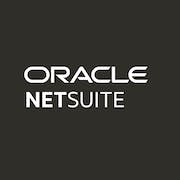Are you tired of the tedious manual order processing tasks that eat up your time and drain your resources? If you're looking for a smarter way to manage your orders, you need an Order Management Software solution that can streamline your entire eCommerce process, from start to finish. By centralizing your order data, and automating your day-to-day tasks, you can save time, reduce errors, and free up your resources to focus on growing and scaling your business. In this buyer's guide, we will highlight the key features and benefits of Order Management Software, and help you choose the right solution to meet your unique business needs.
What is Order Management Software
Order management software is a computer program or platform that helps companies manage the entire lifecycle of their orders. It enables businesses to streamline their order processing, from initial order placement to final delivery, by automating redundant tasks and centralizing order data. Some notable features of order management software include order processing, inventory management, sales management, shipping and delivery, and customer management. Common use cases of Order Management Software include: -Improved order accuracy and faster shipping times -Real-time inventory management that aids in decision-making and forecasting -Complete visibility of the entire order lifecycle, from placement to completion -Efficient and automated order processing from multiple channels or marketplaces -Customer relationship management (CRM) capability and advanced analytics dashboards This type of software is used by many types of businesses, including e-commerce websites, wholesalers, retailers, and manufacturers. It is valuable for companies that have large order volumes, deal with complex orders, or require extensive and varied shipping options. Additionally, it is ideal for companies that need streamlined coordination among multiple departments, such as sales, customer support, and logistics. In conclusion, Order Management Software can significantly enhance the order management process, and thus, it is an essential tool for modern businesses looking to streamline order processing and improve customer satisfaction.
Benefits of Order Management Software
Are you running a business and struggling to manage orders effectively? Order Management Software (OMS) can help you streamline the entire process of managing orders efficiently. OMS is an essential tool for businesses to automate and optimize the order fulfillment process from start to finish. It provides many benefits and advantages that can help businesses to increase their efficiency and profitability. Here are some of the main benefits of using Order Management Software: - Centralized order management: OMS allows businesses to manage their orders from a single, centralized location. No more juggling spreadsheets, emails, and phone calls to keep track of orders. - Automates order processing: OMS automates order processing, reducing the need for manual data entry and minimizing errors. This software can handle a large volume of orders, processing them quickly and accurately. - Real-time inventory management: OMS provides real-time inventory tracking, allowing businesses to optimize their inventory levels and avoid stockouts. - Enhanced customer experience: With automated updates on order and shipment status, customers can stay informed about their orders. This feature enhances the customer experience, leading to increased customer satisfaction and loyalty. - Better order accuracy: OMS reduces the risk of errors such as double orders or incorrect shipments. This accuracy helps to minimize returns and complaints, ultimately saving time and money. - Increased efficiency: With automation and streamlined processes, businesses can process orders more efficiently, reducing costs and increasing profitability. In short, Order Management Software is an essential tool for businesses looking to optimize their order fulfillment processes. By automating and centralizing order management, businesses can increase efficiency, accuracy, and overall profitability.
Features of Order Management Software
Order Management Software (OMS) is a powerful tool that streamlines and automates the process of managing orders and inventory for businesses of all sizes. It allows companies to track orders from any channel, process payments, monitor inventory, and more. Here are 10 common features of Order Management Software that you should know: 1. Order fulfillment - OMS ensures smooth order processing and delivery by integrating with your eCommerce platform, point-of-sale systems, and other sales channels. 2. Inventory management - It helps companies maintain optimal stock levels by tracking inventory in real-time, calculating safety stock levels, and sending alerts when stock levels are low. 3. Integration with shipping carriers - OMS automates shipping label creation and sends tracking numbers to customers. It also supports multiple shipping carriers for flexibility. 4. Returns management - OMS streamlines the returns process by providing customers with return labels and tracking returned items, refunding payments, and updating inventory. 5. Customer management - OMS allows businesses to manage customer information and order history, providing insights into customer behavior, preferences, and purchasing patterns. 6. Multi-channel selling - OMS helps businesses expand their sales channels by supporting multiple platforms such as Amazon, eBay, and other third-party marketplaces. 7. Payment processing - OMS integrates with payment gateways, automating the payment process and reducing errors. 8. Analytics and reporting - OMS provides detailed reports on sales, inventory, and order status, helping companies make informed business decisions. 9. Customization - OMS can be customized to meet the specific needs of each business, including custom workflows and integrations with existing systems. 10. Scalability - OMS grows with your business, supporting increased order volume, product offerings, and sales channels. In conclusion, Order Management Software is a must-have tool in today's fast-paced business environment. It increases efficiency, reduces errors, and allows businesses to focus on growth and customer satisfaction. By embracing these ten features, businesses can take advantage of everything OMS has to offer.
Considerations of Order Management Software
In today's fast-paced business world, having an efficient order management system is critical for ensuring customer satisfaction, streamlining internal processes, and ultimately driving revenue growth. However, choosing the right order management software can be a daunting task, as the market is flooded with many competing solutions. So, what factors should businesses consider when purchasing order management software? 1. Scalability: As your business grows, your order management system should be able to grow with you. Ensure that the software you choose can accommodate an increasing volume of orders and customers without compromising on performance. 2. Integration: Your order management system should integrate seamlessly with other technologies such as your eCommerce platform, accounting software, and customer relationship management (CRM) tools. This ensures smooth and efficient operations while minimizing errors and delays. 3. Customization: Every business is unique, so ensure that the order management software you choose has the flexibility to be customized to meet your specific needs. This includes features such as custom fields, workflow automation, and reporting functionalities. 4. Ease of Use: A complex and unwieldy order management system can lead to inefficiencies and costly errors. Choose software that is intuitive and easy to navigate, with a user-friendly interface that requires minimal training. 5. Security: The security of your customers' data and transactions is of utmost importance. Ensure that the order management software you choose is compliant with industry standards and regulations such as PCI DSS and GDPR. 6. Customer Support: A reliable and responsive customer support team is crucial in ensuring the smooth running of your order management system. Choose software vendors that offer 24/7 support, as well as resources such as online training, user forums, and knowledge bases. By carefully considering these factors, businesses can ensure that they choose the right order management software that can help them achieve their goals while delivering a seamless and satisfying customer experience.
Software Trends for Order Management Software
Order Management Software (OMS) has become an essential component of a successful e-commerce operation. As businesses seek to streamline their operations and provide customers with better experiences, OMS providers are continuously improving their offerings to meet the evolving needs of their clients. In 2023 and beyond, several trends are expected to shape the OMS market.
Firstly, there is a growing demand for cloud-based OMS. Cloud-based systems offer several benefits such as reduced upfront costs, easy scalability, and increased flexibility. Providers such as Brightpearl and TradeGecko are leading the charge in this area.
Secondly, there is a shift towards AI-powered OMS which uses machine learning algorithms to automate tasks such as order routing and fraud detection. Providers such as ShipBob and ShipStation are spearheading this development.
Thirdly, there is a growing need for multi-channel fulfillment capabilities. Customers now expect a seamless experience across multiple sales channels such as e-commerce platforms, social media, and marketplaces. OMS providers such as ChannelApe and Skubana are stepping up to provide integrations with these channels.
Lastly, there is a greater emphasis on real-time analytics and reporting in OMS. Businesses require accurate and up-to-date data to make informed decisions. Providers such as Orderhive and Stitch Labs offer powerful analytics tools to help businesses stay on top of their operations.
As the e-commerce landscape continues to evolve, businesses need to embrace these trends to stay competitive and provide superior customer experiences.









